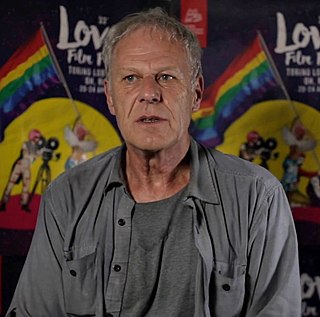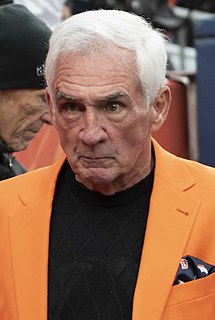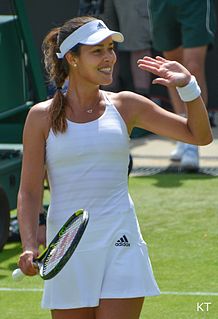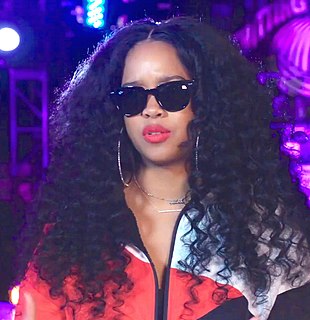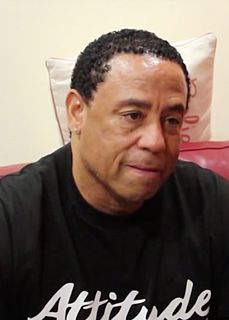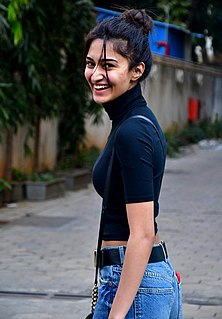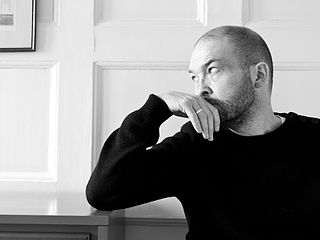A Quote by Vijay Iyer
Beyond that, it gets down to the nuts and bolts of discipline - not a tradition or genre, I don't care about that, actually - but discipline in the sense of just working on music and working on thinking about music. It doesn't matter if it's jazz or not. It's about how we listen, how we interact, how we guide our attention when we're listening, and how we can refine what we're doing musically.
Related Quotes
It doesn't matter if it's jazz or not. It's about how we listen, how we interact, how we guide our attention when we're listening, and how we can refine what we're doing musically. Also how we can create our own music, and what opportunities that can bring us, as creative musicians. And then insisting that musicians put themselves through an intellectually rigorous process, which involves a lot of reading and writing, while insisting that music scholars think about ethics.
Even my colleagues don't read classic criticism. And my feeling is that if you don't do that then you're not really practicing your craft. That's how you learn how to do it. You don't learn how to write about jazz just from listening to jazz. You learn how to write by reading the great writers and how they worked, the great music critics.
I haven't figured out how to do anything yet besides recording music - I don't even entirely know how to do that. My favorite phrase is "It takes a lot of imagination to have no talent." So it's a struggle because I struggle between thinking about whether or not I'm actually a musician, am I actually an artist. Does it matter what I'm doing? Should I just go and jump off a bridge? Thinking about the social hierarchy and the fact that I'm American, and how I don't identify with being American, nor do I identify with any nationality or my race.
We drank quite a lot and Tony Harrington said, "We're thinking of starting a record label at The Wire; how about you do a solo record?" I said, "Well, how am I going to do that?" I thought about it, and I'd been working on a lot of music in the years before, and I was working as a journalist, full time, really, up until that point; in whatever little spare time I had, I was working on music. So I said yes.
People talk about discipline, but to me, there's discipline and there's self-discipline. Discipline is listening to people tell you what to do, where to be, and how to do something. Self-discipline is knowing that you are responsible for everything that happens in your life; you are the only one who can take yourself to the desired heights.
Sometimes it just becomes so technical that you forget what you're doing. If you start thinking about how you come down the stairs and think about how each muscle is working, you can't go down the stairs. Anyway, I'm a person who overthinks and overanalyzes everything, so if you give me one thought, it creates a lot more.
I will do plays as long as they're interested in having me do them. It's the biggest opportunity to learn the most about how to act. Something I discover every time I'm doing one is how little I know about acting - how important the art of listening is, and how important it is to listen with your entire body. You can tell so much of a story with stillness, and a lot of that can be from really actively listening to your scene partner.
There's a continuity between what I care about in any form: I care about it in my music, in article-writing, in how I dress, in how I live, in my relationships, in how I navigate paparazzi, how I decorate my home. There's such a continuity between everything that I don't really care what form it shows up in.
That daydreaming seemed important at the time, but when I asked my teacher Katagiri Roshi about it, he said, "Oh, it's just laziness. Get to work." But as for discipline, I don't even use that word. I think more about passion or love. What I've really learned is the way the mind moves, and how the mind works. Rather than discipline, I know how to seduce my mind.
In a basic music way, my sense of melody and my style of songwriting and production carry the same thought process into the new music. I'm thinking about machines and electronics, and how they interact with motion, which I've touched upon in the past. Those key themes are my main interests, and they are really the foundation for my approach to music.
Listening is terribly important if you want to understand anything about people. You listen to what they say and how they say it, what they share and what they are reticent about, what they tell truthfully and what they lie about, what they hope for and what they fear, what they are proud of, what they are ashamed of. If you don't pay attention to other people, how can you understand their choices through time and how their stories come out?
I personally feel that there's a lot of music journalism that is dominated by genre, because you need a language in which to write, but actually the things that strike people about music, are very hard to write about, and its sonic connections, it's a sense of harmony that I think we all have even if we don't know how to express it - it's something musical, it's synapse connections in our brain.



